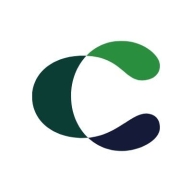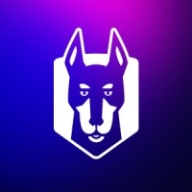

Contrast Security Assess and Snyk are leading tools in the security space. Users find the pricing and support of Contrast Security Assess to be more favorable, while Snyk attracts with its richer features despite a higher cost.
Features: Contrast Security Assess offers comprehensive vulnerability analysis, robust integration capabilities, and easy deployment. Snyk provides open-source scanning, real-time monitoring, and broader support for multiple languages and platforms.
Room for Improvement: Contrast Security Assess could improve integration with newer technologies, enhance its documentation, and broaden language support. Snyk users desire better reporting capabilities, faster scanning processes, and more performance optimizations.
Ease of Deployment and Customer Service: Contrast Security Assess features a straightforward deployment model and supportive customer service. Snyk offers a simple deployment with rapid customer support response times, including swifter resolution times, which users find essential.
Pricing and ROI: Contrast Security Assess has a competitive setup cost and favorable ROI due to efficient integration capabilities. Snyk, despite a steeper initial cost, holds higher long-term value through a comprehensive feature set, though the initial investment remains a user consideration.


Contrast Security is the world’s leading provider of security technology that enables software applications to protect themselves against cyberattacks, heralding the new era of self-protecting software. Contrast's patented deep security instrumentation is the breakthrough technology that enables highly accurate assessment and always-on protection of an entire application portfolio, without disruptive scanning or expensive security experts. Only Contrast has sensors that work actively inside applications to uncover vulnerabilities, prevent data breaches, and secure the entire enterprise from development, to operations, to production.
Snyk is a user-friendly security solution that enables users to safely develop and use open source code. Users can create automatic scans that allow them to keep a close eye on their code and prevent bad actors from exploiting vulnerabilities. This enables users to find and remove vulnerabilities soon after they appear.
Benefits of Snyk
Some of the benefits of using Snyk include:
Reviews from Real Users
Snyk is a security platform for developers that stands out among its competitors for a number of reasons. Two major ones are its ability to integrate with other security solutions and important insights that it can enable users to discover. Snyk enables users to combine its already existing security features with those of other solutions to create far more robust and flexible layers of security than what it can supply on its own. It gives users the ability to dig into the security issues that they may experience. Users are given a clear view of the root causes of these problems. This equips them to address the problem and prevent similar issues in the future.
Cameron G., a security software engineer at a tech company, writes, “The most valuable features are their GitLab and JIRA integrations.The GitLab integration lets us pull projects in pretty easily, so that it's pretty minimal for developers to get it set up. Using the JIRA integration, it's also pretty easy to get the information that is generated, as a result of that GitLab integration, back to our teams in a non-intrusive way and in a workflow that we are already using. Snyk is something of a bridge that we use; we get our projects into it and then get the information out of it. Those two integrations are crucial for us to be able to do that pretty simply.”
Sean M., the chief information security officer of a technology vendor, writes, "From the software composition analysis perspective, it first makes sure that we understand what is happening from a third-party perspective for the particular product that we use. This is very difficult when you are building software and incorporating dependencies from other libraries, because those dependencies have dependencies and that chain of dependencies can go pretty deep. There could be a vulnerability in something that is seven layers deep, and it would be very difficult to understand that is even affecting us. Therefore, Snyk provides fantastic visibility to know, "Yes, we have a problem. Here is where it ultimately comes from." It may not be with what we're incorporating, but something much deeper than that."
We monitor all Application Security Tools reviews to prevent fraudulent reviews and keep review quality high. We do not post reviews by company employees or direct competitors. We validate each review for authenticity via cross-reference with LinkedIn, and personal follow-up with the reviewer when necessary.